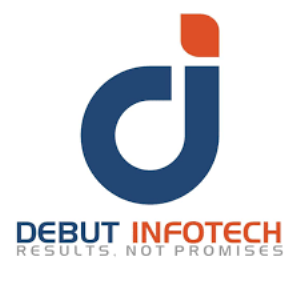LLM Development Services – Powering the Future of Language AI
 Liam Clark
Liam Clark
As businesses increasingly seek intelligent automation and enhanced user interactions, LLM (Large Language Model) development services have emerged as a critical driver of innovation. These LLM development services enable organizations to create, customize, and deploy advanced language models that understand, process, and generate human language at scale.
What Are LLM Development Services?
LLM development services refer to the end-to-end process of designing, training, fine-tuning, and deploying large-scale language models. These models, based on deep learning architectures such as transformers, are trained on vast datasets to generate and comprehend natural language with impressive fluency and context awareness.
The services can include:
Pre-trained model customization
Domain-specific fine-tuning
Prompt engineering and optimization
Deployment on cloud or edge environments
API integration for business applications
Ongoing model maintenance and updates
Organizations can either leverage open-source models like LLaMA, Falcon, and Mistral or opt for proprietary systems from OpenAI, Google, or Anthropic, and then customize them to meet their specific business goals.
Key Use Cases of LLM Development
LLM development services enable a wide array of applications across industries. Some notable use cases include:
Conversational AI: LLMs power intelligent chatbots and virtual assistants capable of handling complex, multi-turn conversations with contextual accuracy.
Document Understanding: From contract review to invoice extraction, LLMs can parse and analyze unstructured text at scale.
Text Summarization: Legal, financial, or academic content can be efficiently condensed while retaining essential meaning.
Content Generation: LLMs assist in writing emails, blogs, product descriptions, and creative text with a brand-aligned tone and style.
Semantic Search: Improve search engine performance by retrieving more contextually relevant results using vector embeddings and intent detection.
Code Generation: AI copilot development uses LLMs to assist developers with code completion, bug fixes, and documentation suggestions.
Benefits of Custom LLM Development
While generic LLMs are powerful, custom-developed models offer higher accuracy, data privacy, and business alignment. Key benefits include:
Domain Expertise: Fine-tuned on industry-specific data, the model performs better in niche contexts.
Improved Relevance: Custom prompts and training datasets ensure outputs match enterprise standards and objectives.
Data Security: In-house or private-cloud deployments provide control over sensitive information.
Performance Efficiency: Optimized models reduce latency and computational cost for faster responses.
Whether you're a fintech firm needing a compliance-aware chatbot or an e-commerce brand requiring product-specific content generation, tailored LLMs outperform generic solutions.
Technologies Behind LLM Development
Developing a large language model requires a sophisticated Generative AI tech stack that combines several components:
Transformer Architectures (e.g., BERT, GPT, T5)
Training Frameworks (e.g., PyTorch, TensorFlow, Hugging Face)
Distributed Computing & GPUs (e.g., Nvidia A100, TPU v5e)
Fine-tuning Techniques (e.g., LoRA, PEFT, reinforcement learning with human feedback)
Evaluation Metrics (e.g., BLEU, ROUGE, perplexity, factual consistency)
In production settings, model compression, quantization, and distillation techniques are also used to reduce size and improve inference speed.
Choosing the Right LLM Development Partner
Not every organization has the in-house resources to build and maintain an LLM. This is where expert LLM development service providers come in. When evaluating a partner, consider the following:
Experience with LLM architectures and frameworks
Ability to handle large-scale data pipelines
Track record in delivering industry-specific NLP solutions
Security and compliance support
Post-deployment monitoring and tuning capabilities
A reliable partner can guide your business through the model lifecycle—from data preprocessing to real-world application integration.
Future of LLM Development Services
The future of large language models is focused on smaller, more efficient models, multimodal capabilities (text, image, audio), real-time learning, and agent-based orchestration. Businesses will increasingly use these models not just for communication but as decision-making tools that interact with software, databases, and users in autonomous ways.
Conclusion
LLM development services offer businesses a powerful way to leverage advanced natural language technologies for better productivity, customer experience, and innovation. Whether you're exploring your first use case or scaling enterprise-wide AI, these services bridge the gap between cutting-edge research and real-world application.
Subscribe to my newsletter
Read articles from Liam Clark directly inside your inbox. Subscribe to the newsletter, and don't miss out.
Written by

Liam Clark
Liam Clark
I am Liam working as an AI consultant at Debut Infotech, a top-notch technology company specializing in delivering top-quality blockchain, ai/ml, crypto, web, and mobile solutions to businesses of all sizes. As a top-notch AI consultant, we aim to deliver quality solutions to businesses around the world. With a team of 100+ leading professionals, we’re continuously building innovative solutions for businesses tailored to their needs and requirements. We’re also the top-rated technology company in blockchain, ai/ml, and mobility solutions by clutch. Connect with us to get more insights about Debut Infotech.